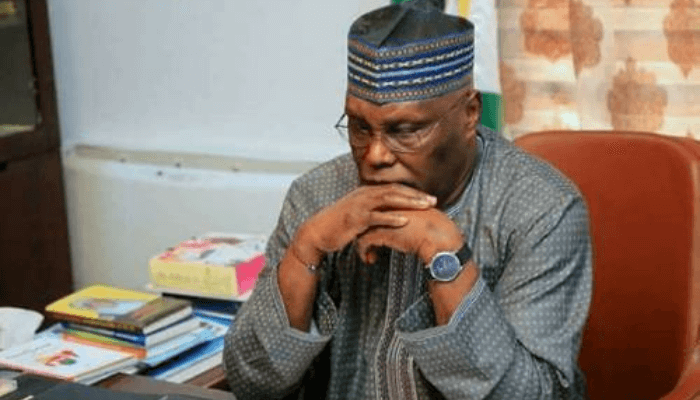The recent attack on Darajamal, a community nestled within the Bama Local Government Area of Borno State, has cast a somber pall over Nigeria. Suspected Boko Haram insurgents stormed the village on a Friday evening, unleashing a torrent of violence that claimed the lives of over sixty individuals, including both civilians and military personnel. The attack, marked by its brutality and senseless destruction, saw homes reduced to ashes and an unknown number of residents abducted, adding another grim chapter to the ongoing insurgency that has plagued the region for over fifteen years. The incident has sparked widespread condemnation and renewed calls for a more robust and effective counter-terrorism strategy.
Former Vice President Atiku Abubakar, deeply moved by the tragedy, expressed his profound sorrow and offered condolences to the grieving families and the people of Borno State. He acknowledged the immense sacrifices made by both soldiers and civilians in the fight against terrorism and stressed the urgent need for national unity and a reinforced commitment to defeating the insurgency. Atiku commended Governor Babagana Zulum for his swift response in visiting the affected community to offer solace and support to the traumatized residents. His words underscored the importance of collective action and unwavering resolve in confronting the persistent threat posed by Boko Haram.
The Darajamal attack serves as a stark reminder of the fragility of peace in the region and the enduring challenges faced in combating the insurgency. Borno State, the epicenter of the Boko Haram conflict, has witnessed a resurgence of attacks in recent months, despite ongoing military operations aimed at securing liberated areas and restoring stability. This renewed wave of violence underscores the complex and evolving nature of the insurgency, highlighting the need for adaptable and comprehensive counter-terrorism measures. The incident has prompted urgent calls for improved intelligence gathering, enhanced support for troops on the ground, and stronger collaboration between security agencies and local communities.
The attack on Darajamal underscores the devastating human cost of the ongoing conflict and the urgent need for a multifaceted approach to addressing the root causes of the insurgency. While military operations remain crucial in containing the immediate threat posed by Boko Haram, a long-term solution requires a comprehensive strategy that encompasses not only security measures but also addresses the underlying socio-economic factors that contribute to the group’s appeal. This includes poverty, unemployment, lack of education, and marginalization, which create fertile ground for recruitment and radicalization.
Furthermore, the attack highlights the critical role of community engagement and intelligence sharing in preventing future atrocities. Strengthening ties between security forces and local communities is essential for building trust and fostering a collaborative environment where information can be shared effectively. Empowering local communities to actively participate in their own security can significantly enhance the effectiveness of counter-terrorism efforts. This includes providing training and resources to local vigilante groups and community leaders, enabling them to play a more active role in identifying and reporting suspicious activities.
In addition to these measures, it is crucial to address the humanitarian crisis that has unfolded as a result of the prolonged conflict. The displacement of millions of people has created immense suffering and further destabilized the region. Providing adequate humanitarian assistance, including food, shelter, medical care, and psychosocial support, is essential for alleviating the suffering of those affected by the conflict and fostering resilience within communities. Moreover, supporting the reintegration of former Boko Haram fighters and their families is crucial for preventing recidivism and fostering lasting peace.
The Darajamal attack serves as a somber reminder of the ongoing challenges faced in combating the Boko Haram insurgency and the urgent need for a holistic and sustained approach. While military operations play a critical role in containing the immediate threat, a comprehensive strategy must also address the underlying socio-economic factors that fuel the insurgency and empower local communities to actively participate in their own security. By fostering collaboration, strengthening intelligence gathering, and providing adequate humanitarian assistance, Nigeria can work towards a more secure and peaceful future for its citizens. The sacrifices made by both soldiers and civilians must serve as a catalyst for renewed commitment and collective action in the fight against terrorism.














